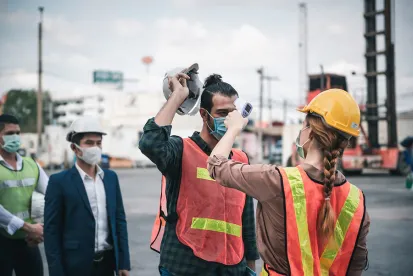It’s our first #WorkforceWednesday of 2021! The past year tested our resilience, and COVID-19 forced everyone to think creatively and adapt quickly. Nowhere was that seen more clearly than in the workplace.
Workplace Safety and Return to Work
Workplace safety has been a major priority from the start of the pandemic, and return-to-work planning has been a moving target amid surges across the country. The end of the year brought welcome news on the vaccine front, which raises important issues around Americans with Disabilities Act and Equal Employment Opportunity Commission compliance.
Privacy, Cybersecurity, and Remote Work
With shifts in workplace policies and guidelines came new cybersecurity issues. What was a challenge in the office became a herculean effort with a remote workforce. With more employees returning to work in 2021, employers are seeking to balance workplace safety with privacy concerns around personal information.
Employee Leave and Benefits
As the virus spread, federal and state legislation required additional employee leave and benefits. Already, lawmakers have granted employers the ability to extend emergency paid sick leave through March 31, 2021. Employers also took it upon themselves to offer new benefits and wellness offerings to help employees grappling with the pressures of the pandemic.
Other Highlights
New Year, New President, New Wage-Hour Issues
As President-Elect Biden’s inauguration nears, employers are closely watching key wage-hour issues that are likely to change, including the federal minimum wage, the criteria for classifying independent contractors, the joint-employer rule, and the use of class and collective action waivers. Read more here.
Updates from the States
-
Before the New Year, business groups in California sued Cal-OSHA to stop the implementation or enforcement of the agency’s sweeping COVID-19 requirements. Despite these challenges, unless and until the regulations are withdrawn, invalidated, or expire, there could be consequences for noncompliance.
-
New Jersey may grant businesses in the state immunity from lawsuits related to workers’ or customers’ exposure to COVID-19.
-
New York has enacted a law requiring that single-occupancy restrooms be gender-neutral. Employers should prepare by ensuring that all single-occupancy restrooms on their premises are clearly designated as gender-neutral.
Shawndra G. Jones & George Carroll Whipple, III contributed to this piece.






 />i
/>i

